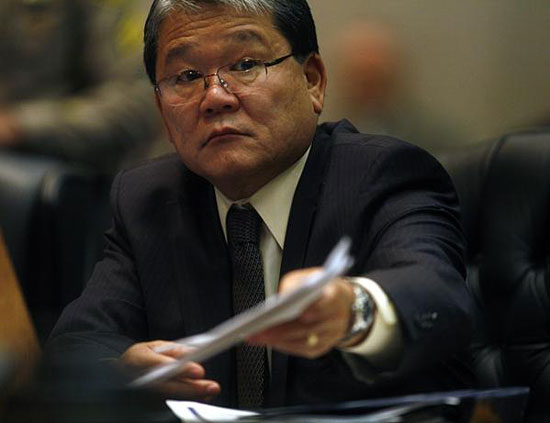After a short stall, budget passes
October 9, 2013
The Los Angeles County Board of Supervisors on Tuesday gave final approval to a budget that reflects improving revenues from a rebounding economy, along with urgent new demands on those funds for jail reform, improvements in the child welfare system and other looming needs.
But getting there wasn’t easy. A short-lived—though potentially damaging—budget standoff temporarily stopped the process in its tracks and drew comparisons to the ongoing showdown in Washington D.C. before it was resolved.
It was the first time in memory that the usually routine action of recognizing supplemental revenue in the county budget had been derailed in such a manner, if even for a brief period.
The $362.4 million being transferred in this year’s supplemental budget process was intended to fund a variety of county initiatives—from implementing recommendations by the Citizens’ Commission on Jail Violence to hiring 147 additional children’s social workers to enhancing contract monitoring of foster family agencies and group homes. With property and sales tax revenues on the upswing and an infusion of funds following the state’s disbanding of redevelopment agencies, there was also money for maintenance and capital projects that had been deferred during the lean days of the Great Recession.
Tuesday’s standoff started when Supervisor Mark Ridley-Thomas balked at placing two chunks of the supplemental revenue—totaling $55 million and $20 million—into the county’s extraordinary maintenance and capital project budgets, respectively.
Instead, he argued, the funds should go into the county’s rainy day fund to cover unexpected needs that may crop up. That fund, as of Tuesday, had just over $232 million in it.
Ridley-Thomas’ motion, opposed by Supervisors Don Knabe, Gloria Molina and Zev Yaroslavsky, drew the support of Supervisor Michael D. Antonovich—and that was enough to deprive the supplemental budget item of the 4-vote super-majority needed for passage.
“It’s just like the feds. We have no budget,” Molina said incredulously.
Yaroslavsky said the 11th hour hitch in the budget process was “a Tea Party-esque kind of thing.”
The development came hours into a marathon meeting at which the eventual passage of the supplemental budget—the last step in approving the county’s official spending plan for fiscal 2013-14—had seemed assured. The stalemate was broken a short time later, when Antonovich moved reconsideration of the item.
Antonovich suggested that the two pots of money—the $55 million and $20 million—be combined in the CEO’s budget to address either capital projects or extraordinary maintenance needs in this fiscal year.
That proposal passed unanimously, and the county’s supplemental budget was approved, largely in the same form originally recommended by Chief Executive Officer William T Fujioka.
After the reversal, Yaroslavsky called the whole episode “a bizarre way to do business.”
“It was disconcerting but I suppose one could say, to quote Churchill, ‘Democracy eventually does the right thing, but only after exhausting all the alternatives.’ ”
Posted 10/9/13













 405 bridge work causes a stink
405 bridge work causes a stink
